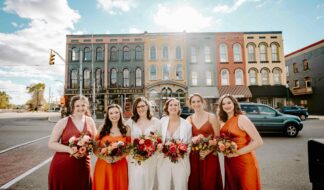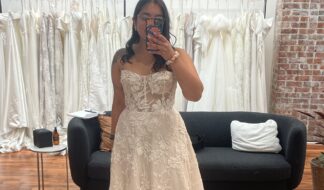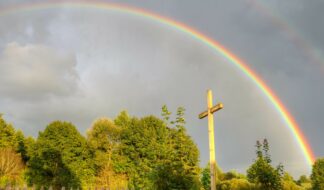By Emell Derra Adolphus
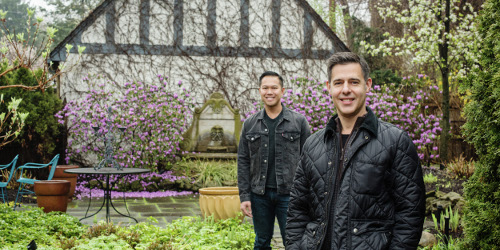
John Corvino and Mark Lock have been proud residents of Sherwood Forest since 2002. BTL photo: Andrew Potter
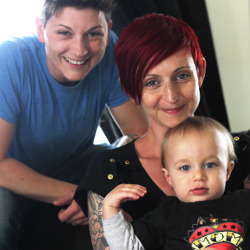 For Kari Kildow, the city of Ferndale has come to mean family. It's where she first met her partner, Emily Hopkins, and where they've created a cozy, "thrift-store chic" home for their 1-year-old son, Leo.
For Kari Kildow, the city of Ferndale has come to mean family. It's where she first met her partner, Emily Hopkins, and where they've created a cozy, "thrift-store chic" home for their 1-year-old son, Leo. There's more to home than simply where you lay your hat. For many LGBT couples of Metro Detroit, home starts with welcoming communities and open minds.
For Kari Kildow, the city of Ferndale has come to mean family. It's where she first met her partner, Emily Hopkins, and where they've created a cozy, "thrift-store chic" home for their 1-year-old son, Leo.
"Most people want to live in a nice safe neighborhood. Being an LGBT person, the neighborhood might be safe, but you never know if it is safe to be LGBT there," says Kildow. "Honestly, home to me is really wherever Emily is."
The 700-square-foot east Ferndale home Kildow shares with Hopkins has been in Hopkins' family for generations — "It was built in about 1940," she says — and is in a neighborhood where the couple feels modern families can thrive.
"We don't want to live somewhere where we are the only gay couple, let alone the only gay couple with children," says Kildow. "(Ferndale) is a place where we can be together and feel safe and comfortable."
When considering where to live in Metro Detroit, many couples are turning to historic neighborhoods and are finding themselves pleasantly surprised.
John Corvino and his partner Mark Lock have been proud residents of Detroit's Sherwood Forest since 2002.
"We definitely considered the LGBT-friendliness of the neighborhood," says Corvino. "Detroit's historic neighborhoods are generally quite LGBT-friendly, and Sherwood Forest has even exceeded our expectations."
Although they are in a neighborhood of classic homes — theirs is a 1937 Tudor-style home measuring approximately 3,000 square feet — Corvino has found the neighbors to have a modern mindset.
"I actually think this is one advantage to Metro Detroit's not having a full-fledged 'gayborhood,' such as, for example, Chicago's Boystown," he says. "We mix with different people; we get to know one another. And that personal interaction is a big part of what's driving progress on (LGBT) issues."
When Nick Piotrowski and his partner John Davis made the move to their 1,600 square foot home in Detroit's Green Acres neighborhood in 2014, the area was perfect because of its potential.

When Nick Piotrowski and his partner John Davis made the move to their 1,600 square foot home in Detroit's Green Acres Neighborhood in 2014, the area was perfect because of its potential. BTL Photo: Andrew Potter
"The city was important to us, in that (it) is a diverse in all senses of the word neighborhood. Racial, socioeconomic, sexual orientation, ownership status, age, and a mix of family structures was really important for our community," says Piotrowski. "Thinking of community in a social justice sense was (also) part of our focus; fighting injustice and being a part of a community where we could connect with other people was important, and the city is really the best place to do that."
While it's important to feel embraced by your community, it's just as important to find a community you are willing to embrace, Piotrowski says. Only then will you see your neighborhood as a home.
"I think of home as the environment that we make for ourselves that is really reflective of our lives, both in terms of physical setting, but also in terms of the memories and traditions that we hold and celebrate within it."



